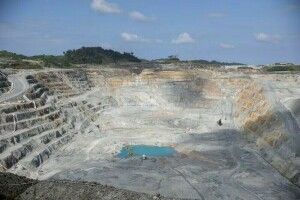PPRA Recommends Reko Diq Cargo Handling at PIBT Without Bidding
The Public Procurement Regulatory Authority (PPRA) has advised the Federal Cabinet to sanction the handling of copper and gold shipments from the Reko Diq project at the Pakistan International Bulk Terminal (PIBT) in Port Qasim, foregoing the standard competitive bidding process, according to sources familiar with the matter.
This recommendation comes after in-depth discussions during a pair of PPRA Board meetings, which were attended by board members and special advisors.
On April 11, 2025, PPRA Managing Director Hasanat Ahmed Qureshi briefed the Board—led by Finance Secretary and PPRA Board Chairman, Imdad Ullah Bosal—that the proposal concerning “Exemption under Section 21 of the PPRA Ordinance, 2002 – Utilization of PIBT at Port Qasim by Reko Diq Mining Company for the Reko Diq Project” had been initially addressed on April 10, 2025.
Reko Diq Mining Company Seeks PIBT Services for Cargo
During the initial meeting, the Board chose to postpone the matter, citing a lack of sufficient justification. They directed the Ministry of Maritime Affairs (MoMA) to present a revised proposal, clarifying the following: (i) confirmation that the situation aligns with the definition of public procurement; (ii) reasons supporting the exemption request; and (iii) clear reference to the specific PPRA rule under which the exemption was sought.
In response to the Board’s inquiries, MoMA Secretary Syed Zafar Ali Shah explained that the Port Qasim Authority (PQA)—as a statutory body established by the PQA Act, 1973—meets the criteria of a “procuring agency” as defined in Rule 2(1) of the PPRA Ordinance, 2002, and is therefore governed by PPRA regulations.
Rear Admiral Syed Moazzam Ilyas (retd), Chairman of PQA, noted that the PPRA Ordinance defines public procurement as the acquisition of goods, services, or construction projects funded entirely or partially by public funds, unless specifically excluded by the federal government.
He highlighted that PIBT was awarded a concession in 2010 through competitive bidding to manage coal, clinker, and cement at Port Qasim. Consequently, the addition of other commodities—such as copper, gold, and other minerals—would also fall under public procurement and typically necessitate a competitive bidding process.
In a subsequent communication on April 11, 2025, MoMA clarified that the Reko Diq Mining Company (RDMC) had informed the government that the Reko Diq Project represents one of the world’s largest untapped copper-gold reserves. RDMC is owned 50% by Barrick Gold, 25% by three federally owned enterprises, and 25% by the Government of Balochistan (15% fully funded and 10% free-carried).
The project holds the status of a “qualified investment” under the Foreign Investment (Promotion & Protection) Act, 2022, and is anticipated to attract the largest influx of foreign direct investment (FDI) in Pakistan’s history. MoMA contended that utilizing PIBT for Reko Diq’s cargo—following amendments to the Implementation Agreement (IA)—would not only bolster the development of Pakistan’s mineral export sector but also optimize the utilization of PQA’s infrastructure.
MoMA requested the PPRA Board to deliberate on granting an exemption from the competitive bidding process as per Rules 12 and 20 of the PP Rules, 2004, in accordance with Section 21 of the PPRA Ordinance, 2002.
The MD (PPRA) further advised the Board that the request had the support of the SIFC’s Executive Committee, which convened on January 22, 2025.
The meeting minutes, released on February 19, 2025, detailed that: (i) the EC unanimously agreed to grant an exemption allowing PIBT to handle additional commodities, including copper-gold and other natural earth minerals; and (ii) the EC instructed the Petroleum Division to forward the case to PPRA—via MoMA—to obtain the exemption and empower PQA and PIBT to amend their IA to facilitate export on a non-exclusive basis.
The Petroleum Division independently submitted an exemption request to PPRA, aligning with the SIFC’s directive. These requests were evaluated during the PPRA’s 93rd Board meeting.
Following comprehensive discussions, the PPRA Board reached the following conclusion: “Considering the discussions and requests from the Ministry of Maritime Affairs, Petroleum Division, and the counsel of SIFC, the Board suggests that the Federal Government consider an exemption under Section 21 of the PPRA Ordinance, 2002, from the application of Rules 12 and 20 of the PP Rules, 2004, to the Port Qasim Authority (PQA), Ministry of Maritime Affairs.
This would enable PQA to finalize engagement terms with PIBT for the export (on a non-exclusive basis) of copper-gold commodities, including minerals, metals, and other natural earth materials, based on the presented justification.“
However, the Board also underscored that the procuring agency must protect governmental interests—especially concerning revenue—and uphold transparency, fairness, accountability, and value for money throughout the process.



Comments (0)
No comments yet. Be the first to comment!
Leave a Comment